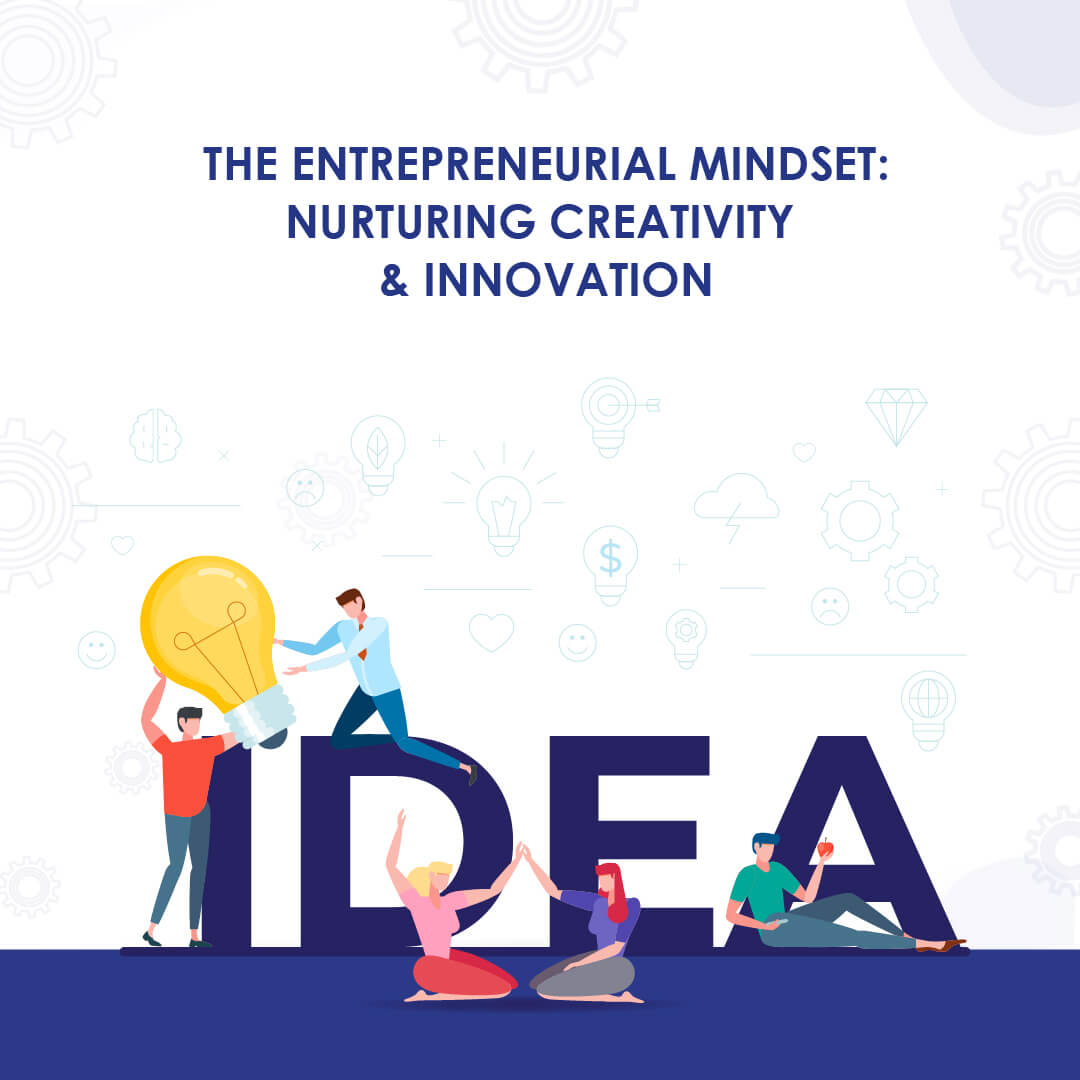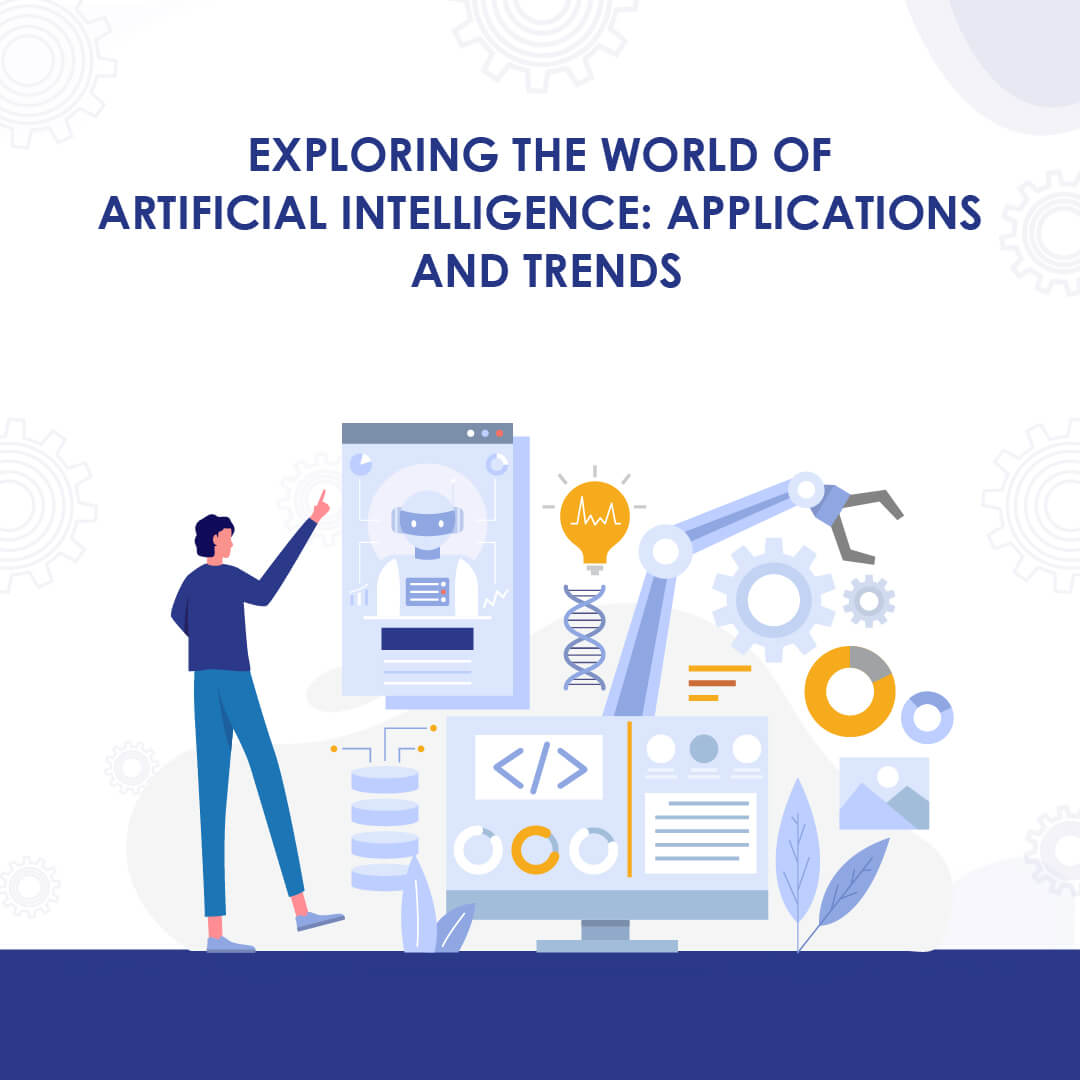Glimpse into the Future of Engineering
Setting the Stage for the Future of Engineering
The Shifting Landscape of Engineering
Artificial Intelligence and Machine Learning
Internet of Things (IoT) and Smart Engineering
Sustainable Engineering and Clean Energy
3D Printing and Additive Manufacturing
Biotechnology and Bioengineering
Aerospace and Space Exploration
Ethical Considerations in Engineering
Preparing Engineering Students for the Future
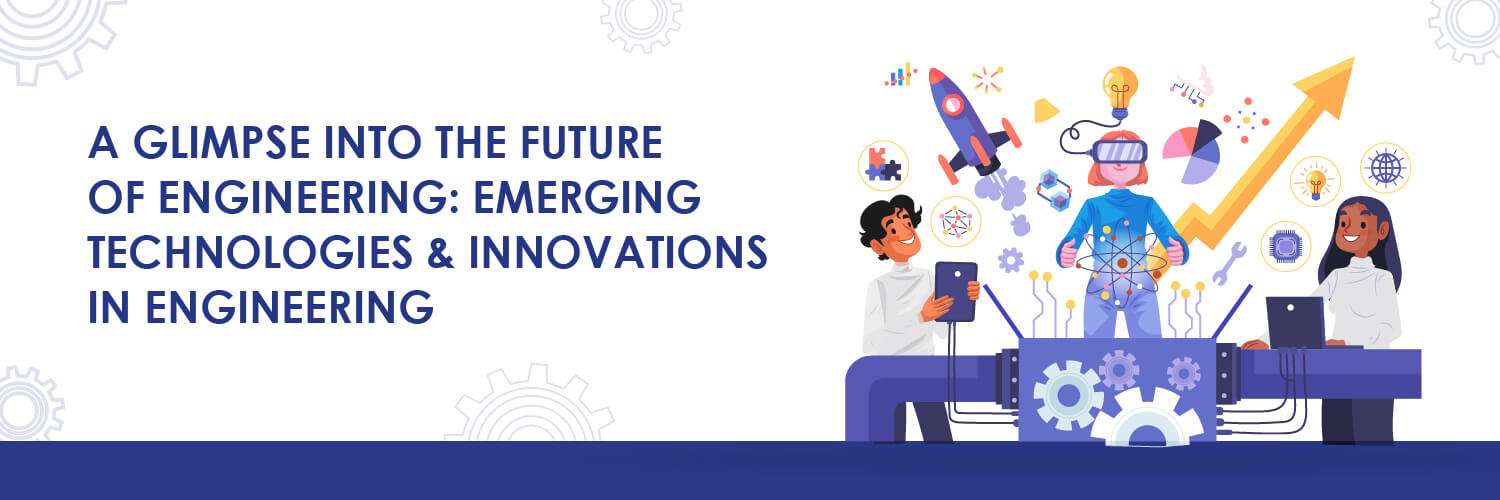
In a rapidly evolving world, the future of engineering is poised to be a thrilling and transformative journey. As technology continues to advance at an unprecedented pace, engineers find themselves at the forefront of innovation, shaping the way we live, work, and interact with the world. In this blog, we will delve into the latest innovations in technology, explore emerging technologies and innovations, and discuss the best engineering degrees for the future. We will also highlight the commitment of MIT Academy of Engineering (MITAOE) to staying at the cutting edge of these advancements, making it one of the best colleges for mechanical engineering and a leading institution for engineering education in India.
Setting the Stage for the Future of Engineering
MIT Academy of Engineering, situated in Pune, India, is known for its unwavering commitment to providing top-notch engineering education. In an era where technology shapes our world, MITAOE is dedicated to preparing the next generation of engineers for the challenges and opportunities that lie ahead. With a strong focus on innovation and technology-driven education, MITAOE ensures that its students are well-equipped to thrive in the ever-evolving field of engineering.
The Shifting Landscape of Engineering
The 21st century has witnessed a seismic shift in the landscape of engineering. Gone are the days of traditional methods and analog technologies. Today, engineers are at the forefront of
- Digital transformation
- Leveraging cutting-edge technologies to solve complex problems
- drive progress in various fields
Let's take a closer look at some of the key areas where emerging technologies are making a significant impact.

Artificial Intelligence and Machine Learning
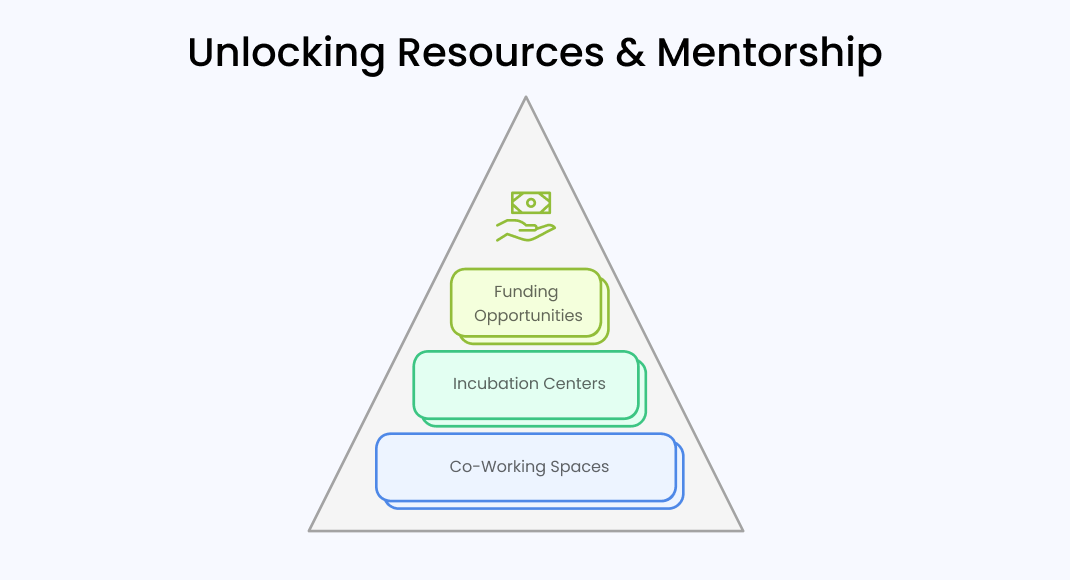
Artificial Intelligence (AI) and Machine Learning (ML) have emerged as game-changers in engineering. These technologies have the potential to
- Automate tasks
- Analyze massive
- Datasets
- Make predictions with unprecedented accuracy
In engineering, AI and ML are being applied in fields such as predictive maintenance, design optimization, and autonomous systems.
Imagine a manufacturing plant where machines can predict when they need maintenance, reducing downtime and saving costs. AI-driven design tools can optimize
- Product designs for performance and efficiency
- Resulting in innovative
- Sustainable solutions
However, with great power comes great responsibility, and engineers must grapple with ethical considerations and challenges related to data privacy and bias when implementing AI and ML.
Internet of Things (IoT) and Smart Engineering
The Internet of Things (IoT) is ushering in a new era of connectivity and data-driven decision-making. IoT involves the interconnection of everyday objects and devices to the internet, enabling real-time monitoring, control, and automation. In engineering, IoT is transforming the way projects are planned, executed, and maintained.
For example, in civil engineering, sensors embedded in infrastructure can detect structural issues and provide early warnings of potential failures. In healthcare, IoT devices can monitor patient health remotely, reducing the need for frequent hospital visits. IoT is not limited to a specific field; its applications span across industries, making it a powerful force in the future of engineering.
In India, IoT-connected device usage has surged by about 30% recently, largely driven by smart technologies and digital transformation trends.
Sustainable Engineering and Clean Energy
Sustainability is no longer a buzzword but a driving force in engineering. The need to mitigate climate change and minimize environmental impact has led to innovations in clean energy and sustainable practices. Engineers are working tirelessly to develop renewable energy sources, improve energy efficiency, and reduce waste.
Solar panels, wind turbines, and advanced battery technologies are becoming more accessible and efficient. Sustainable building materials and designs are revolutionizing the construction industry. Engineers are also exploring innovative ways to reduce carbon emissions and promote environmental stewardship.
Robotics and Automation
The integration of robotics and automation is revolutionizing various industries, from manufacturing to healthcare. Robots are being used for tasks that are repetitive, dangerous, or require extreme precision. In manufacturing, robots can work alongside human operators to increase efficiency and quality.
In healthcare, surgical robots are enabling minimally invasive procedures with greater precision, reducing patient recovery times. The field of robotics is continually evolving, with advancements in artificial intelligence enabling robots to adapt to dynamic environments and collaborate with humans.
3D Printing and Additive Manufacturing
3D printing, also known as additive manufacturing, is changing the way products are designed and prototyped. This technology allows engineers to create complex and customized parts with incredible precision. 3D printing is used across industries, from aerospace to healthcare.
In aerospace engineering, 3D printing is used to create lightweight and intricate components for aircraft and spacecraft. In medicine, it has enabled the production of patient-specific implants and prosthetics. The flexibility and versatility of 3D printing make it a valuable tool for engineers seeking innovative solutions to complex problems.
Biotechnology and Bioengineering
The intersection of biology and engineering is giving rise to exciting possibilities in biotechnology and bioengineering. Engineers are collaborating with biologists to develop new medical devices, therapies, and diagnostics. The field of biomedical engineering, in particular, is experiencing rapid growth.
Biotechnology innovations include gene editing technologies like CRISPR-Cas9, which hold the potential to treat genetic diseases. Bioengineers are also working on tissue engineering to create artificial organs and regenerate damaged tissues. The future of healthcare will undoubtedly be shaped by the convergence of biology and engineering.
Aerospace and Space Exploration
Advancements in aerospace engineering and space exploration are opening up new frontiers. Private companies like SpaceX and Blue Origin are leading the charge in reducing the cost of space travel and making it more accessible. This shift from government-led space programs to private sector involvement is driving innovation in rocket design, satellite technology, and space tourism.
Aerospace engineers are also working on the development of reusable rockets, which promise to drastically reduce the cost of launching payloads into space. The possibilities for scientific discovery, resource exploration, and even colonization of other planets are on the horizon.
Ethical Considerations in Engineering
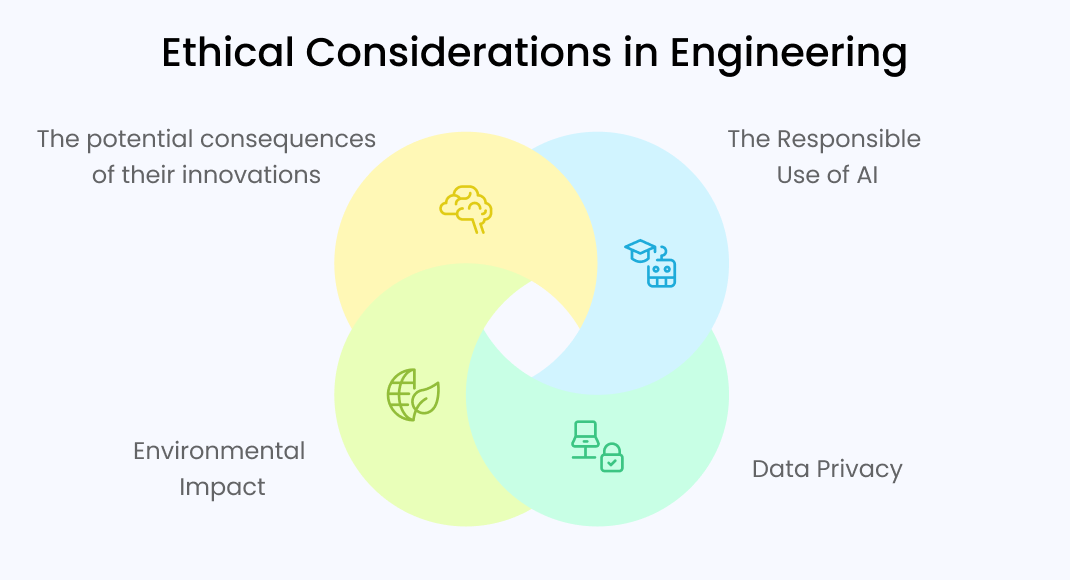
As engineering becomes increasingly intertwined with emerging technologies, ethical considerations come to the forefront. Engineers must grapple with questions related to
- The responsible use of AI
- Data privacy
- Environmental impact
- The potential consequences of their innovations
MITAOE recognizes the importance of ethical engineering and is committed to instilling these values in its students.
Preparing Engineering Students for the Future
MITAOE understands the importance of preparing engineering students for the challenges and opportunities presented by emerging technologies. The institution's curriculum is designed to equip students with the knowledge and skills needed to work with cutting-edge technologies. This includes hands-on experience with AI, IoT, robotics, and other relevant fields.
Furthermore, MITAOE fosters a culture of innovation and entrepreneurship, encouraging students to think creatively and develop solutions to real-world problems. Through industry partnerships and collaboration with leading companies, students gain valuable insights and practical experience that prepare them for successful careers in engineering.
OUR RECENT BLOG
